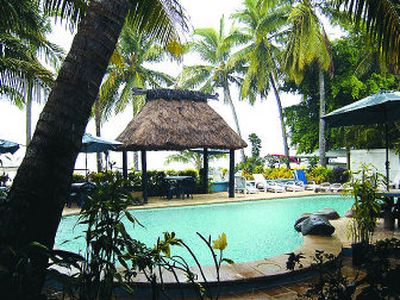Traveling in style with a budget

AUCKLAND, New Zealand – The first thing I learned when I started traveling around the world nearly 20 years ago was that finding affordable accommodations could make or break my budget.
Let’s face it, we all want a room with a million-dollar view – we just don’t want to have to pay that much.
For years backpackers in Europe, and to a lesser extent the U.S., have managed to see the world for less by staying in youth hostels.
True, in the 1960’s and ‘70s most of these low-end accommodations were considered a hangout for single hippies traveling through Europe and India, and high school students on tight budgets. Quarters were basic: a bed, a kitchen and a common area. You were often expected to help with chores, which could range from cleaning pots and pans to scrubbing toilets.
But today hosteling is just as popular with older travelers, young couples and families. Most hostels have high-speed Internet, satellite TV, fully equipped kitchens and even spas. And you’re almost always guaranteed not to have to clean a toilet.
Since my first hosteling trip in the 1980s, I’ve stayed in hostels with views of the canals in Venice, Italy, under the shadow of the Eiffel tower in Paris, and overlooking volcanic craters in New Zealand – rooms, because of their location, I otherwise would never have been able to afford.
There are more than 4,000 hostels in 70-plus countries around the world today. They were originally established for backpackers who could hike from one location to the next in about a day, with no pre-booking; you were not allowed to show up in a car expecting a place to stay (walkers, backpackers and hikers only); and the only meals you were served were the ones you made yourself.
Today the most popular hosteling organization around the world is the Youth Hostel Association. The YHA often converts historic sites into hostels, which means you might stay in a haunted castle in Scotland, a treehouse in Australia or just around the corner from the famed Blue Mosque in Istanbul.
Private rooms have become more common in recent years, though many hostels still require you to share a room with several other people. But if you travel by yourself, as I often do, it gives you the opportunity to socialize with people you otherwise would never have met.
I’ve shared a room with a retired World War II German army officer, helped Japanese diplomats in Morocco with their English, and here in New Zealand met a couple of Coeur d’Alene firefighters – one of whom I interviewed for a story in Hayden, Idaho, a few years back while working for Fox 28 television in Spokane.
I don’t know who said it first, but we both laughed and agreed the world couldn’t get much smaller.
Myles Sharp has worked with YHA international in Auckland for almost five years. He feels most people who have never spent a night at a hostel are missing out on a unique experience.
“A lot of people are thankful that they come to a place like this,” Sharp says. “It’s a more friendly atmosphere, people get to know one another, and they begin to relax a little more.”
Of course, hosteling isn’t for everyone. You are staying with strangers, don’t always have a say who will be sharing a room with you, and the location of some hostels can be a bit off the beaten track.
Still, most people are surprised at just how upscale hosteling has become over the past 20 years. Many locations don’t even call themselves hostels any more; they’re listed as two- or even three-star hotels.
On a recent visit to Fiji, my “hostel” was actually a three-star resort on the beach with a swimming pool, free breakfast and shuttle service into town. Total cost: $17 per night.
In our lounge wasn’t a bunch of drunken twentysomethings, but a newly married couple from Australia, a single 40-something woman from Canada and several British couples in their 60s or 70s, talking about that day’s diving trip.
In fact, I may have been the youngest one there.
Turns out youth hostels aren’t just for the young after all.